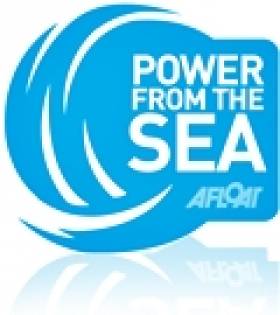Displaying items by tag: Irish Wave Energy Device Developers Association
#oceanenergy – Conor Haughey is to Chair the Irish Wave Energy Device Developers Association (IWEDA) following its inaugural meeting on 18 April, 2014 at NUI Maynooth. The organisation is made up of 11 Irish companies who are all developing different Ocean Energy Technologies.
The aim of the association are
• To promote the establishment a viable Ocean Energy Industry in Ireland.
• To secure government and EU support for the industry.
• To promote the industry to private equity investors.
• To collaborate resources and agree best development protocols
• To lobby state agencies involved in the sector for a better terms for our members.
• To address the imbalance between public monies available for academic research and that available to industry.
• To lobby Universities for better terms for access to facilities and research.
• To develop a 1/15th scale test site to complement existing Irish infrastructures that will address problems at an early stage before proceeding to the 1/4 scale Galway Bay site.
Considerable amounts of public monies have been spent on developing laboratory test facilities and ocean test sites in Ireland. This money will be wasted if Irish developers remain underfunded and unable to develop devices to be tested in these facilities.
With proper investment, government support and the help of research institutions we can create an Irish based global industry employing many thousands of people, while making a huge contribution to the economy and enable Ireland to reach its renewable energy targets.
Member Companies
1 Benson Engineering Tom Benson
2 Jospa Patrick Duffy/ Joss Fitzpatrick
3 JJ Campbell & Assoc Emmet Farrell/John Farrell
Wave Energy Ireland
4 Sea Energies Sean Lavelle
5 Blue Power Energy Conor Haughey/Damien Browne
6 Ocean Renewables Brendan McGrath
7 Wave Force Energy John Miller/David Beattie/Lawrence Crane
8 Cyan Technologies Tim Morrissey
9 Wavetech Energy Peter Redden
10 Limerick Wave Paddy Walsh/Paddy Kelly
11 Waveset John Beilenberg






























































